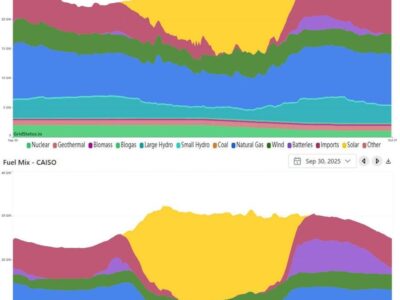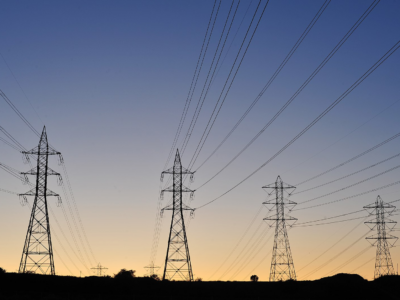A start on feasible permitting reform
A proposal from the National Governors’ Association is narrow and focused, and that’s good
I’ve written recently about the difficult politics of permitting reform at the federal level. But that doesn’t mean that there isn’t important work to be done. It does mean that successful proposals will have to be, as I wrote, low salience, thoughtful, and unlikely to provoke polarization.
The National Governors’ Association has just come out with a proposal for permitting reform, covering certification under Section 401 of the Clean Water Act, transmission permitting, and NEPA, and nuclear power. In general, their proposals meet the requirements I’ve laid out above. They are not dramatic changes to any of the relevant laws. For instance, it includes useful suggestions for better coordination across agencies for permitting review – though many of them will require budgetary resources that I am skeptical this Administration would support or provide.
More potentially controversial are proposals for expanded categorical exclusions from NEPA. Some are generally beneficial from an environmental and climate perspective, such as transmission lines in existing rights-of-way, geothermal projects, and energy storage. Removing duplicative reviews for at least some staged agency projects, such as geothermal project approval, makes sense.
Other proposals don’t really seem to resolve the underlying problem. For instance, what does an exemption for “low-disturbance domestic manufacturing facilities producing critical energy-related components” really apply to? What would it mean to exclude from the scope of NEPA projects with “minimal federal involvement” or to not “automatically” apply NEPA to projects receiving less than 50% federal funding? (The proposed “minimal” standard arguably does not even change current law.)
Nor is it clear what it would mean to “enforce” timelines for completion of environmental reviews under NEPA – the proposal would allow permit applicants “an expedited pathway” for judicial review to force agency decisions that are past timeframes, but the only suggested remedy is a refund of permit fees. The proposal argues such a remedy might provide an incentive for agencies to operate more expeditiously on permits – and if so, this seems like an approach that could provide useful improvements in permitting speed without undermining the underlying permit decision. As for NEPA judicial review, the proposal calls for reducing the statute of limitations for NEPA to one year, and a time limit for agency decisions on remand – as I’ve noted before, these proposals might provide some useful certainty for agencies and applicants, but are unlikely to affect sophisticated litigants seeking to challenge projects.
The transmission reform proposals also appear to be helpful: Increasing FERC power to designate transmission lines for federal permitting is important, as are reforms to the allocation of costs for new transmission lines, though again, as with prior proposals, the lack of details here as to how to allocate costs is precisely the problem that needs to be solved. And providing greater certainty as to the consideration of “up-stream” and “down-stream” impacts for transmission projects would be helpful too, to the extent that such impacts must be analyzed either for FERC permitting directly, or for any NEPA review. (Upstream impacts refer to the impacts a transmission line might produce by changing generation, such as encouraging construction of new renewable energy projects, and downstream impacts refer to the impacts a line might produce by changing electricity availability for users.)
Finally, the proposals for Clean Water Act permitting are again mostly helpful changes to allow for more coordination and greater capacity for state permitting. Some will require budgetary resources (such as reimbursing states that do permitting) that I am, again, skeptical as to whether they will be provided. Setting statute of limitations for Section 401 certification has similar benefits (and limitations) as for NEPA litigation; a refund for permit fees for delayed permits similarly may be helpful. The proposal I have the most questions about is the extension of NPDES permits beyond the usual five year term “for certain projects unlikely to include significant changes in between permits, if the state determines that significant changes to the permit are not necessary” – the main issues here are what “unlikely” and “significant changes” mean, and what to do about significant changes in circumstances (such as to receiving water quality or wetlands) in the relevant timeframe.
Looming over all of this, of course, is the Administration’s use of discretionary permitting to stop renewable energy projects, and the difficulty of trusting the Administration to abide by any deal. There is talk of looking for legislative language that might constrain the Administration’s discretion – though we’ll see if that’s possible.







Reader Comments